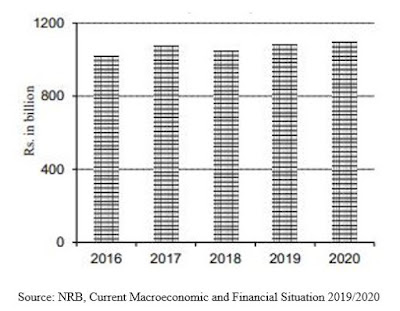COVID-19 Impact on Foreign Exchange Reserves and Policy Response of Nepal

Before the global health crisis began , banks usually had a surplus foreign exchange on account of remittance which makes up more than 26 % of the GDP. They had extra funds which they sold to the central bank after fulling their market requirements. The central banks maintain foreign exchange based on the funds received from all banks and financial institutions. For instance if banks are not receiving sufficient foreign exchange reserves from tourism, export, and other factors of external sectors due to the decrease in the inflow of remittance. Then there will be low selling foreign exchange to the central bank by commercial banks. Since, Nepal is heavily dependent on the import of a number of essential goods such as food items, medicine, and petroleum products. With COVID-19 and recent lockdown across the globe, there is a rapid slowdown in foreign exchange into the nation. The inflow to go down further until the situation improves. As a result there will be a hard hit in the reserve...